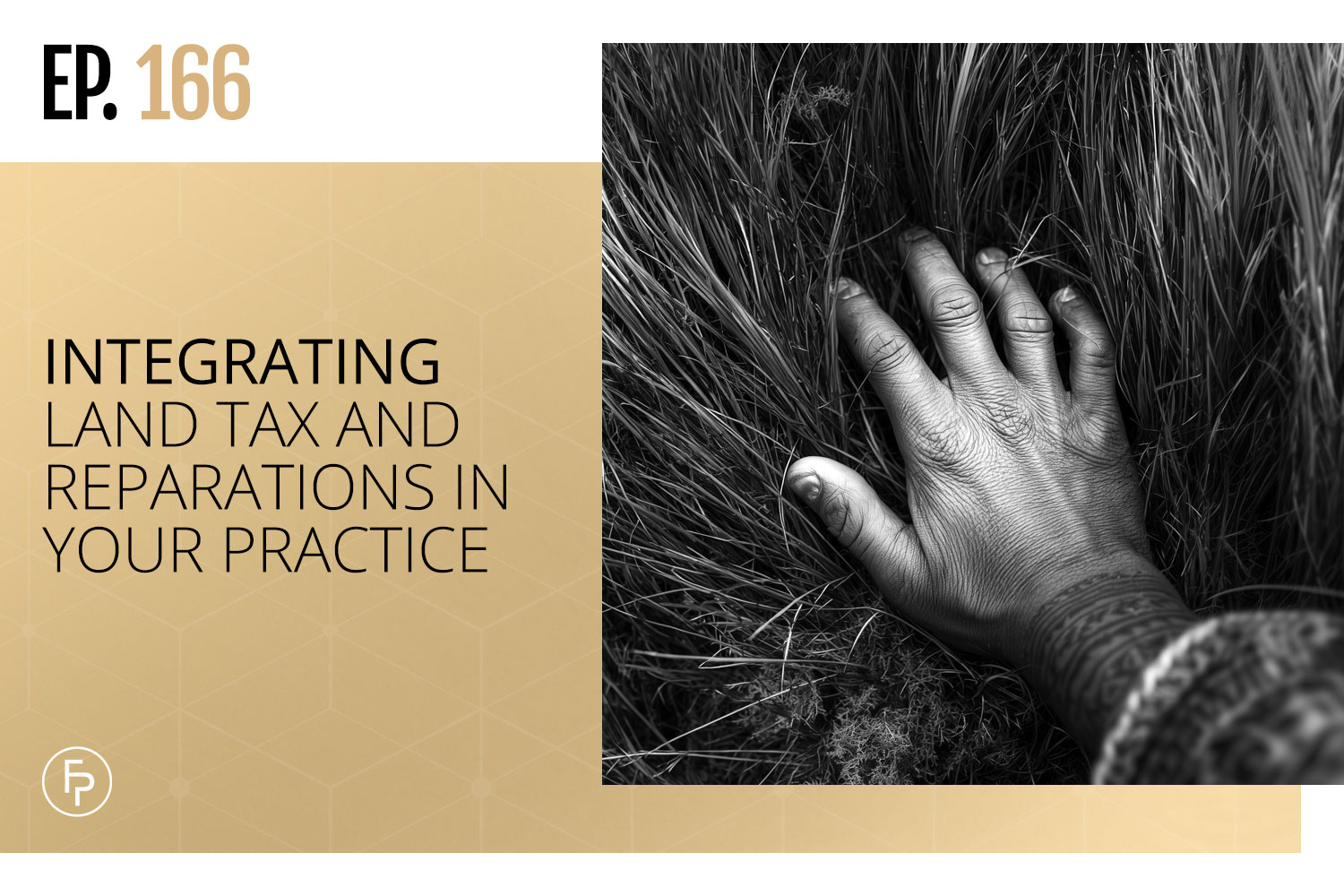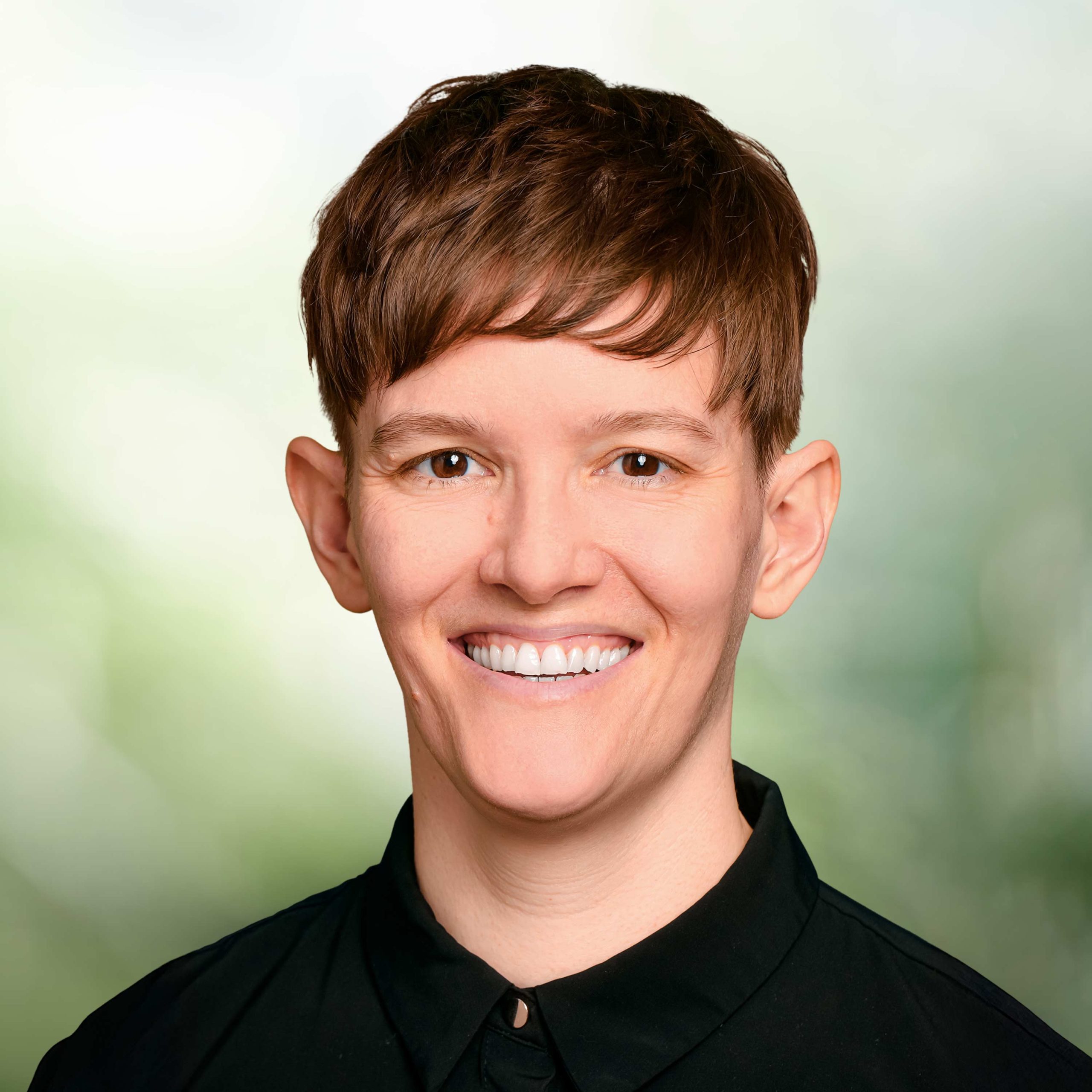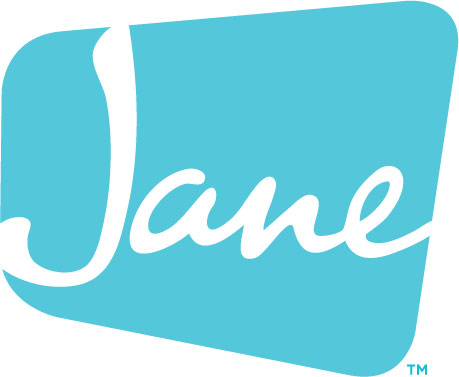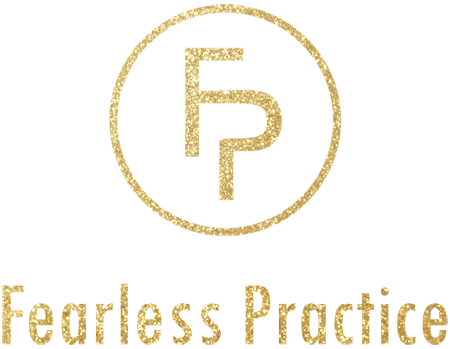INTEGRATING LAND TAX AND REPARATIONS IN YOUR PRACTICE | EP 166

Something has been bubbling up in me after watching a skit from Canada’s Baroness von Sketch show a couple of years ago. In this sketch, they highlight how land acknowledgment without material giving can often feel performative or incomplete.
So I decided to make a change in my own Canadian private practice. I have started donating a percentage of our monthly gross income to the Mi’kmaw Native Friendship Centre in Halifax, Nova Scotia.
In this episode, I’m sharing what “land tax” and “reparations” actually mean, why you may consider incorporating them into your private practice, and how you can start doing this in your practice or business. This may not be the whole answer, but it can be a meaningful step forward.
Jane is an all-in-one health and wellness practice management platform designed to be helpful to you, no matter how or where you practice. Available online and on any device, Jane offers branded online booking, beautiful scheduling, insurance management, customizable charting, online intake forms, patient reminders, integrated payment processing, online appointments (telehealth) and more! Use the code FEARLESS at signup to receive your first month completely free!
In This Episode
- Putting my money where my mouth is
- What “land tax” and “reparations” actually mean
- Why you should consider donating
- How I make the donations in my private practice
Putting my money where my mouth is
It’s one thing to say we care about something—but in a capitalist society, the reality is that money carries immense power. The good news is, we can choose to direct that power toward justice by being intentional about where and how we spend, invest, and give.
The issues of land reparations have always been close to my heart, and I am glad that I have started to practice this value instead of only talking about it.
‘This past month, I decided to start donating a percentage of my monthly gross income to the Mi’kmaw Native Friendship Centre … This is by no means a perfect solution, but it is a step – and steps matter!’ – Jules Smith
What “land tax” and “reparations” actually mean
Reparations refer to intentionally giving back or redistributing resources, often financial, to communities that have been harmed or dispossessed. In Canada’s case, indigenous communities.
Reparations are also not just symbolic, they are material, consistent acts of accountability due to past colonization, land theft, and systemic harm.
Similarly, but distinct, land tax is a grassroots concept. It is not a government-enforced tax. Businesses and people can voluntarily donate money to indigenous communities, acknowledging that they are benefiting from living and working on indigenous land.
Why you should consider donating
Many people feel on the fence about contributing to something like land tax or reparations efforts because they believe that since they didn’t personally steal the land, they shouldn’t have to make amends for it.
To be honest, this is something I’ve thought about too. But even then, I knew the way things were didn’t sit right with me. Here’s why you may want to consider paying land tax and reparations too:
1 – You are benefiting from stolen land
‘Even if you didn’t take the land yourself, you are living and working on it. Land that was never sold or surrendered. That benefit: housing, business, income, stability, comes from a colonial system that displaced indigenous peoples.’ – Jules Smith
2 – It’s about responsibility, not guilt
Land tax isn’t about “feeling bad” or being blamed. It’s about recognizing that we all have a role in repairing harm — especially if we benefit from systems that were built through dispossession.
3 – It supports indigenous-led solutions
‘Your contribution helps fund community programs, housing, food security, cultural revitalisation, and other essential work – led by indigenous people for indigenous people!’ – Jules Smith
4 – It’s a form of reparative justice because it is one small step in a larger process of reconciliation
It’s one small, material step in a larger process of reconciliation. Words and land acknowledgments are important, but they don’t change material conditions. Consistent giving is a way to restore some measure of balance.
How I make the donations in my private practice
Each month, I head into my Jane App account and pull my monthly gross income report, which is created before business expenses are taken out.
I calculate the percentage I have committed to donating, and then I e-transfer that amount directly to a donation center I have chosen to partner with. It is that simple!
‘Something I do recommend you do is reach out to the organization before you start doing this so that they are aware and to confirm if e-transfer is the best way to donate each month.’ – Jules Smith
Connect With Me
Resources Mentioned and Useful Links:
Ep 165: Jenny Jonker: Building a Canadian Group Practice with Purpose | EP 165
Learn more about the tools and deals that I love and use for my Canadian private practice
Sign up for my free e-course on How to Start an Online Canadian Private Practice
Jane App (use code FEARLESS for one month free)
Get some help and freebies on your website with WordPress!
Mentioned link: https://www.youtube.com/watch?v=xlG17C19nYo
Rate, review, and subscribe to this podcast on Apple Podcasts, Spotify, Amazon, and TuneIn


About Jules Smith
Jules Smith, MEd, RCT, CCC is a registered Counselling Therapist who owns a group private practice in Halifax, Nova Scotia. They are also the owner of Fearless Practice Consulting and hosts the Fearless Practice podcast. Through the Fearless Practice podcast, they provide invaluable insights and practical advice on starting and growing a successful Canadian private practice.
Jules also has written articles for the Canadian Counselling and Psychotherapy association. You can learn more at www.ccpa-accp.ca/blog/.


